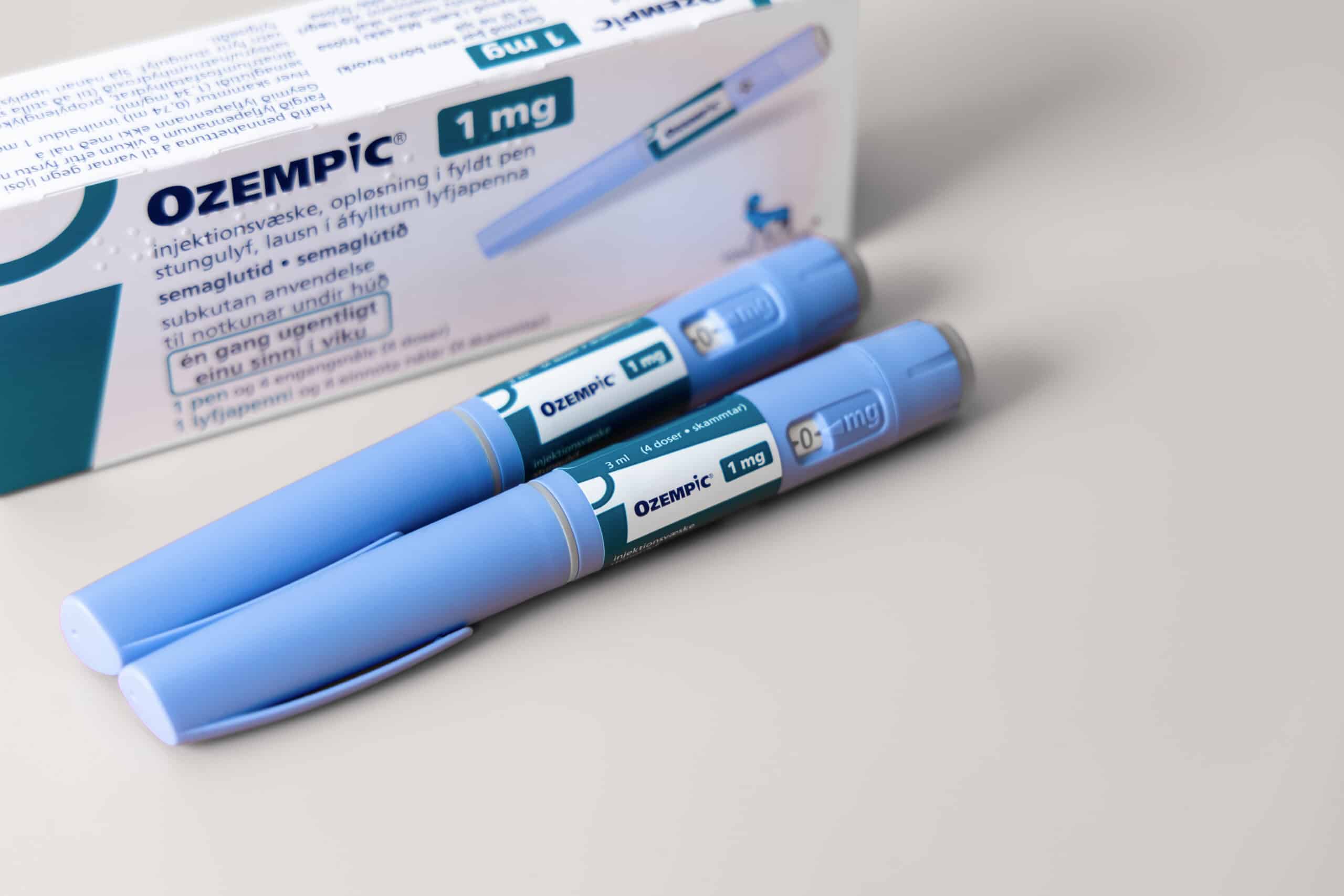Did you know that a medication primarily used for diabetes and weight loss is now showing promise in reducing alcohol cravings? Ozempic, known for its role in managing blood sugar levels, is making waves in the medical community for its unexpected benefits in altering drinking behaviors. With millions of people struggling with alcohol use disorder (AUD), a new tool that can help curb alcohol cravings is a game-changer.
In this article, we’ll explore how Ozempic is changing the way people drink. We’ll examine the science behind its impact on alcohol consumption, discuss key statistics and research findings, and look at what this means for individuals seeking help for AUD. If you or a loved one is trying to manage alcohol dependence, this could be an eye-opening look at a potentially groundbreaking approach.
What Is Ozempic?
Ozempic (semaglutide) is a GLP-1 receptor agonist originally developed to treat type 2 diabetes. By mimicking the glucagon-like peptide-1 (GLP-1) hormone, it enhances insulin secretion, reduces blood sugar levels, and slows digestion, helping individuals maintain stable blood glucose levels.
Beyond its role in diabetes management, Ozempic has also gained widespread popularity for its effects on weight loss. Clinical studies have shown that semaglutide can significantly reduce body weight, leading to its off-label use for obesity treatment. However, recent findings suggest that Ozempic may also influence drinking behaviors, potentially helping individuals reduce their alcohol consumption.
The Popularity of Ozempic for Non-Diabetes Uses
The rise in Ozempic prescriptions has been driven by its ability to curb appetite and promote significant weight loss. Many people who have taken Ozempic for weight management have also reported reduced cravings for various substances, including alcohol. This unintentional side effect has sparked interest among addiction specialists, leading to new research into how Ozempic may play a role in treating substance use disorders.
The Link Between Ozempic and Alcohol Consumption
Scientific Studies on Ozempic and Alcohol Use
Emerging research suggests that individuals taking GLP-1 receptor agonists like Ozempic experience a noticeable decrease in alcohol cravings. A recent study found that participants taking these medications reduced their binge-drinking episodes by nearly 50% compared to those who were not on the drug.
Additionally, animal studies support these findings. A study conducted by the National Institute on Alcohol Abuse and Alcoholism (NIAAA) found that semaglutide reduced alcohol consumption in rodents by decreasing the brain’s reward response to alcohol.
How Does Ozempic Reduce Alcohol Cravings?
While the exact mechanisms are still being studied, researchers believe that Ozempic’s effect on drinking behavior is linked to its impact on the brain’s reward system. The drug activates GLP-1 receptors in the brain, which are involved in regulating dopamine release.
Alcohol consumption triggers the release of dopamine, creating a pleasurable sensation that reinforces drinking behavior. By modulating this process, Ozempic may reduce the rewarding effects of alcohol, making it less desirable to drink.
Furthermore, Ozempic may also reduce impulsive behavior, which is a significant factor in excessive alcohol consumption. Many individuals with alcohol use disorder struggle with impulse control, leading to binge drinking and difficulty maintaining sobriety. The potential for Ozempic to help regulate these behaviors presents a promising avenue for addiction treatment.
Ozempic and Alcohol Use Disorder (AUD)
Could Ozempic Be a New Treatment for AUD?
Alcohol use disorder is a chronic condition that affects nearly 29.5 million people in the U.S. alone. Traditional treatments include behavioral therapy, support groups, and medications such as naltrexone and disulfiram. All of which are offered here at Achieve Wellness & Recovery.
Ozempic’s potential to curb alcohol cravings could introduce a new approach to AUD treatment. Early clinical data suggests that individuals taking semaglutide report fewer urges to drink, consume less alcohol overall, and experience improved self-control regarding alcohol use.
Personal Stories: Real People, Real Impact
Several individuals have shared their experiences of how Ozempic helped them reduce their alcohol intake. One woman, featured in a report by ABC News, said she lost her urge to drink entirely after starting Ozempic for weight loss. While anecdotal, these stories align with emerging scientific research.
The Potential for Expanded Research
Although the initial findings are promising, more extensive research and clinical trials are needed to determine the long-term efficacy and safety of using Ozempic for alcohol use disorder. Scientists are currently exploring whether GLP-1 receptor agonists can be integrated into comprehensive addiction treatment programs, potentially revolutionizing the way AUD is managed.
Ethical Considerations and Future Implications
As interest in Ozempic’s impact on alcohol use grows, ethical concerns also arise. Should it be prescribed specifically for alcohol use disorder, or should its use remain incidental? Medical professionals will need to consider the long-term effects and any potential risks of prescribing Ozempic to individuals without diabetes. More extensive clinical trials are necessary to determine whether it is safe for widespread use in addiction treatment.
Additionally, as demand for Ozempic increases, there are concerns about access and affordability. If more people begin using Ozempic for off-label purposes, those who rely on it for diabetes management may face shortages or price hikes. Policymakers and healthcare providers must balance accessibility with responsible prescribing practices.
A New Era in Alcohol Use Treatment?
Ozempic is transforming not just diabetes and weight loss treatment but also the way people drink. As research continues to unfold, it may soon become a valuable tool in helping those struggling with alcohol use disorder. While it is not yet a standalone cure for AUD, the possibility of incorporating Ozempic into addiction treatment plans is an exciting development.
If you or a loved one is struggling with alcohol dependence, professional support is crucial. Achieve Wellness & Recovery offers comprehensive addiction treatment services that can help you take control of your life. Contact us today to learn more about our personalized recovery programs and emerging treatment options.








